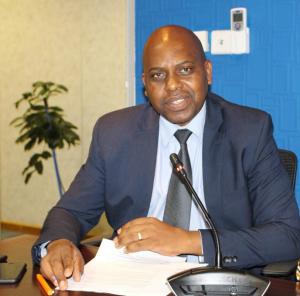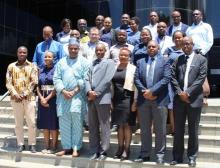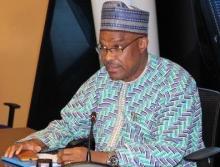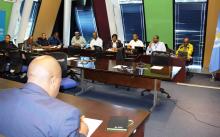Botswana takes giant stride towards Institutionalization of National Health Accounts
Gaborone, BOTSWANA - 27th November 2018: The Ministry of Health and Wellness (MoHw) with support from the World Health Organization (WHO) in collaboration with several institutional partners has commenced the generation of the 4th round of, and to institutionalize the National Health Accounts (NHA) in Botswana. The NHA is a framework for measuring total national health expenditures including public, private, and donors. It provides key indicators that are used to diagnose the ‘financial health’ of the health system. NHAs are the main source of data on money flows in healthcare and are used both for national and international purposes.
NHA in the Botswana Development context
In Botswana, information and evidence on performance of health systems to help managers and policy makers make an informed decision is limited or of quality concern. As part of the efforts to build the foundations of its health system, the MoHw with support from WHO and partners, has embarked on the process of generating the necessary evidence in institutionalizing NHA. The NHA will provide a platform to monitor and evaluate health care interventions, policy design and implementation, and dialogue. This is a key milestone for the health sector and the first time to attempt to institutionalise the NHA, in Botswana.
Mr Moses Keetile, the Deputy Permanent Secretary of Planning, Research and Policy Development Department, highlighted the importance of institutionalization of NHA, underscored the importance of conducting NHA in Botswana and noted that the MoHw will use the information from the NHA for evidence based decision making, policy formulation, planning, and monitoring and evaluation as the MoHw and partners move towards Universal Health Coverage. He added that the NHA findings will further be used for advocacy and resource mobilization by health actors including parliament, Ministry of Finance and Economic Development, including guiding future investment decisions arising from Mid-Term Review of the Botswana National Development Plan (NDP 11) to be conducted in 2019. He acknowledged the technical support received from WHO, in capacity building and skills transfer to the in-country NHA Working group.
“We need to come up with efficient approaches if we are to institutionalise the process, and ensure that, the outputs will be timely, to inform and guide the budgetary planning cycles, to help us reach our NDP targets, UHC and SDGs”
WHO actions
WHO is committed to supporting the Ministry of Health and Wellness of Botswana to fully institutionalize the NHA. Currently WHO is supporting a 5-day consultative process working with the in-country NHA TWG, made up of 20 members from Ministry of Health and wellness, Ministry of Finance and Economic Development, Statistics Botswana, Health Insurance Institutions, Health management organization, National Aids Coordinating Agency, University of Botswana, UNAIDS, UNICEF, private sector and research partners, equipping them with hands-on knowledge and skills on NHA production tool and system of health accounts (SHA11). WHO will also provide technical support to the MoHw in data collection and entry, cleaning, analysis, report writing, dissemination and advocacy, and including the development of the NHA institutionalisation plan.
WHO Country Representative for Botswana, Dr Martins Ovberedjo, highlighted the contribution of the National Health Accounts to achieving the common health care system goals of equity, efficiency and effectiveness of care. Dr Martins Ovberedjo reaffirmed WHO’s commitment and applauded the leadership of the MoHw and partners for the bold step taken to institutionalize NHA in the country. He further encouraged the TWG members, especially the lead team from the MoHw, to apply themselves as much as possible and use the skills acquired to bring the best out of the process for the country’s benefit. The participants were further reminded that, experts are born out of full participation in processes as such, and can later export the lessons learnt to other member-states in the region, sharing best practices.



